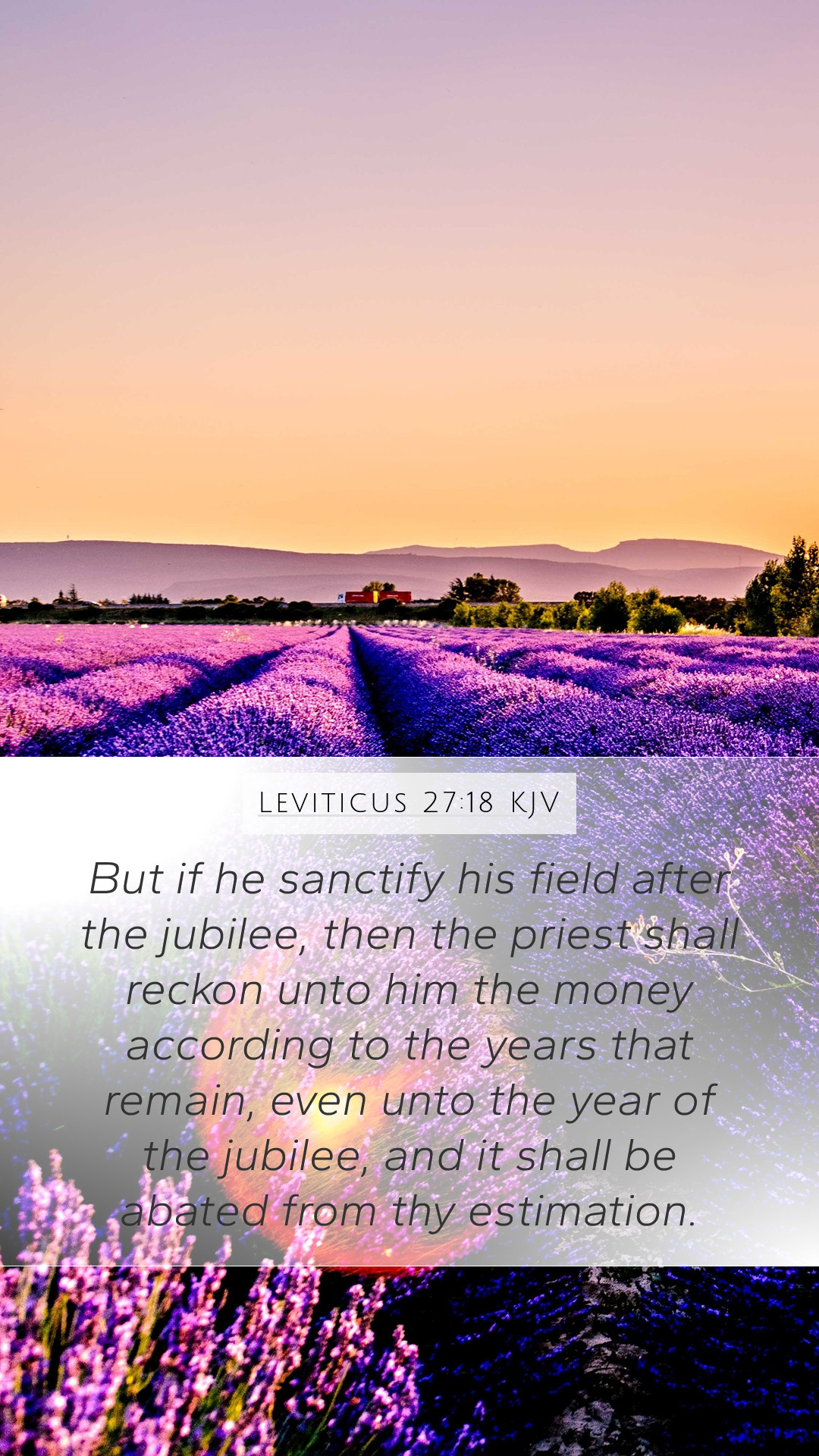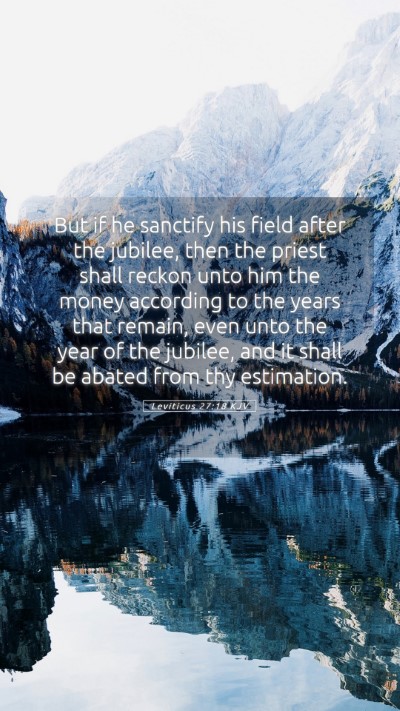Understanding Leviticus 27:18
Bible Verse: Leviticus 27:18
“But if he sanctify his field after the jubilee, then the priest shall reckon unto him the worth of it according to the years that remain, even unto the year of the jubilee; and it shall be abated from thy estimation.”
Bible Verse Meaning and Interpretation
The verse in Leviticus 27:18 addresses the valuation of land within the context of the Israelites' laws regarding property. This scripture exemplifies the detailed measures that God prescribed for managing inheritances and property within the Israelite community, which is significant in understanding the deeper implications of stewardship, divine ownership, and community welfare.
Contextual Overview
The Book of Leviticus sets forth various laws governing the Israelite community, particularly concerning holiness and devotion to God. Chapter 27 specifically concerns the laws about vows, dedicating property or persons to God, and the assessment of those dedications.
Insights from Public Domain Commentaries
-
Matthew Henry:
Henry emphasizes that this provision illustrates God’s care in ensuring fairness in assessments related to property. He notes the importance of the jubilee as a time when land was returned to its original owners, reflecting God's desire for equity and stability in His people's possessions.
-
Albert Barnes:
Barnes points out that the valuation of land after the jubilee serves to highlight the transitory nature of earthly possessions and underscores that everything ultimately belongs to God. He interprets the abatement of value as a reminder that earthly treasures are fleeting.
-
Adam Clarke:
Clarke provides deeper historical insights into the jubilee system, underscoring its socio-economic implications. He suggests that understanding the jubilee's context is essential in grasping the significance of property valuation and the sanctity of God’s laws regarding land.
Key Themes and Concepts
-
Divine Ownership:
All land and resources ultimately belong to God, and humans are stewards of His gifts.
-
Justice and Equity:
The valuation process reflects the importance of fairness in transactions and the protection of the vulnerable members of society.
-
Restoration and Redemption:
The concept of the jubilee illustrates God's provision for restoration within the community, showcasing a divine plan to renew and redeem.
Application of the Verse in Daily Life
Modern readers can apply the principles found in Leviticus 27:18 by reflecting on their own possessions and understanding them as entrusted by God. This verse calls individuals to consider how they manage their resources, engage in fair practices, and support community welfare.
Bible Study Insights
This scripture can serve as a discussion point in bible study groups, focusing on the themes of stewardship, justice, and community support. It provides a relevant framework for understanding how ancient laws can inform contemporary principles of ethics and morality.
Related Bible Verses
- Leviticus 25:10: Discusses the year of jubilee and the return of land.
- Numbers 36:7: Addresses inheritance laws and the preservation of tribal inheritance.
- Deuteronomy 15:2: Explains the release of debts every seven years, emphasizing compassion in economic interactions.
Conclusion
Leviticus 27:18 encapsulates significant lessons regarding divine ownership, fairness in valuation, and the importance of communal restoration. As part of bible verse commentary, it encourages readers to engage in practical application of God’s principles in their lives, fostering a deeper understanding of Scripture.


